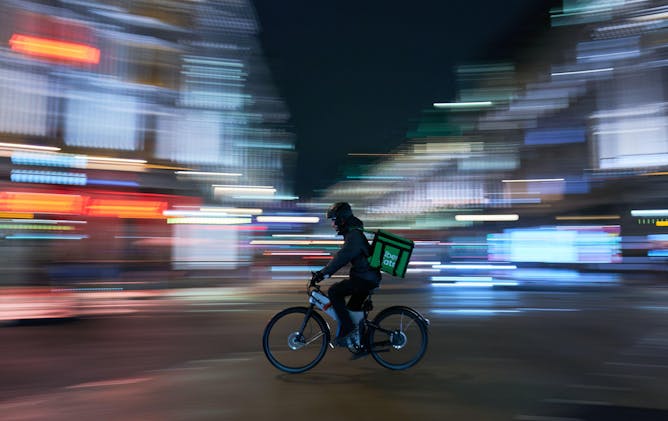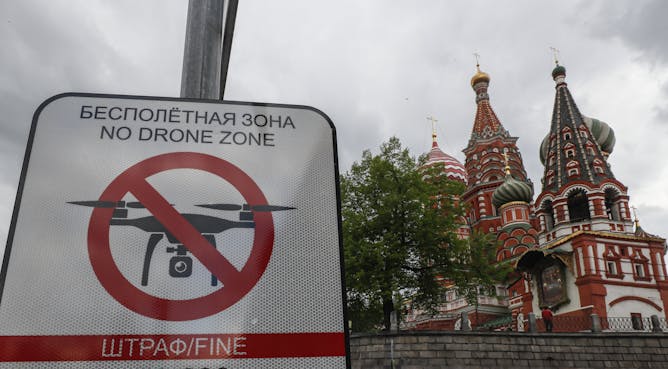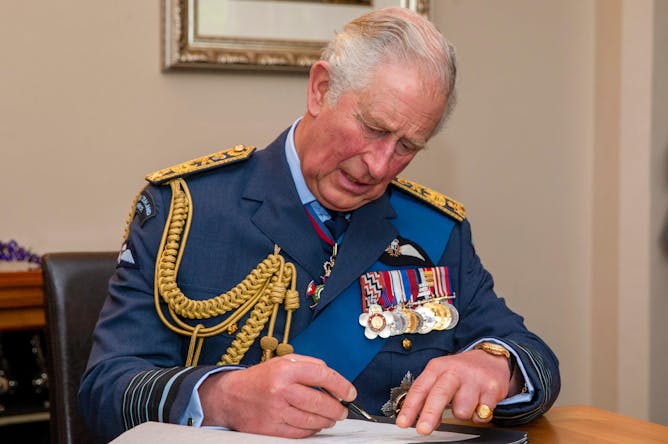|
If you are one of the many millions who’ve used an app to have hot food delivered, you should take a look at our latest Insights long read. Over the past two years, our authors have conducted in-depth interviews with couriers in one (unnamed) English city. In so doing, they’ve got to know a number of undocumented migrants working as delivery riders by informally renting accounts from other, documented couriers.
Our story puts a spotlight on their experiences. Poignantly, one told the researchers that he often goes short of food himself while working as a delivery rider. “I’m always delivering food while hungry,” he said, adding that while he would like to secure his right-to-work documentation, for him, “It’s a choice between eating or getting the documents.”
We also bring you the view of two military experts on who was behind the attack on the Kremlin by a drone “flying in at an oddly photogenic angle”. One immediate conclusion is that the attack made “no military sense on Kyiv’s part”. And a language expert explains why the oath of allegiance to King Charles III is no such thing – it fails the “sincerity condition” on at least two counts.
As co-editor of the Insights section, I feel passionately about the importance of hearing from people who, for whatever reason, don’t normally get the opportunity to speak and be listened to. Please consider donating to The Conversation over this bank holiday weekend, so that even more of those voices can be heard.
Donate
|

|
Mike Herd
Investigations Editor, Insights
|
|

Riders who deliver for online food platforms are self-employed, and can nominate a substitute to deliver on their behalf.
John Walton/PA/Alamy
Pedro Mendonça, Heriot-Watt University; Ian Clark, Nottingham Trent University; Nadia Kougiannou, Nottingham Trent University
Our study of food delivery workers in one English city highlights the daily challenges facing undocumented migrants in this sector.
|

Security: the Kremlin has banned the use of drones in the centre of Moscow ahead of the May 9 ‘Victory Day’ celebrations.
EPA-EFE/Yuri Kochetkov
David Hastings Dunn, University of Birmingham; Stefan Wolff, University of Birmingham
The drone ‘attack’ on the Kremlin remains shrouded in mystery. Here are some of the possible explanations.
|

I solemnly swear…
One-image photography / Alamy Stock Photo
Monika Schmid, University of York
The oath of allegiance is meaningless on several counts.
|
Politics + Society
|
-
James Sunderland, University of Oxford
Israeli prime minister, Benjamin Netanyahu, faces problems on all fronts.
-
May Darwich, University of Birmingham
There is a risk that Sudan’s conflict could spill over into neighbouring countries.
|
|
Arts + Culture
|
-
Michael White, University of York
Growing up in Yorkshire gave Hepworth and Moore outsider viewpoints on the art world.
-
Natalee Garrett, The Open University
The coronations of these kings symbolise more than mere spectacle: they are a declaration of the new monarch’s intent as they transform from heir to sovereign.
|
|
Business + Economy
|
-
Daniel Beunza, City, University of London
Digital bank runs are a new threat to financial stability.
|
|
Education
|
-
Alex Mangold, Aberystwyth University; Sarah Pogoda, Bangor University
The number of students studying languages in UK universities has plummeted in recent years but some creative thinking may help to reverse that trend.
|
|
Environment
|
-
Brendan Canavan, University of Nottingham
Heading on holiday soon? Here’s some tips for making your holiday greener.
-
Chris Thorogood, University of Oxford
An expert’s tips on how to keep your indoor plants looking their best.
-
Dave Petley, University of Hull
When we talk about landslides we need to talk about social justice.
|
|
Health
|
-
Jaana Halonen, Stockholm University; Auriba Raza, Stockholm University
Our long-term research project found commutes over 3km were associated with a greater likelihood of being overweight.
|
|
Podcasts
|
-
Daniel Merino, The Conversation; Nehal El-Hadi, The Conversation
Cloud seeding – spraying materials into clouds to increase precipitation – has been around for nearly 80 years. But only recently have scientists been able to measure how effective it really is.
|
|
|
|
| |
|
|
|
|
| |
| |
| |
| |
| |
|
|